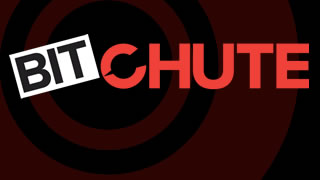TAGS JOHN DOMINIC CROSSAN 15 CAESAR 18
Video Description (from Youtube)
"Why did we call Jesus 'lord'? In the Roman world, Caesar was lord, so if you call Jesus lord, Caesar ain't, and it becomes high treason. What was the alternative vision for the world that Jesus and Paul had, and why did it get them killed?"
In MATTHEW AND EMPIRE, New Testament professor Warren Carter examines the political claims and visions of social organization found in the Gospel of Matthew, which he describes as "a theological challenge to Rome's imperial propaganda." Biblical studies professor Neil Elliott interprets Paul's Letter to the Romans "in the shadow of empire" in a book entitled THE ARROGANCE OF NATIONS, and he makes a case for "the counter-imperial aspects" of Paul's rhetoric. In THE POWER OF THE WORD: SCRIPTURE AND THE RHETORIC OF EMPIRE, feminist scholar Elisabeth Schussler Fiorenza calls for an effort to "deconstruct the language of imperial domination in which scriptural texts remain caught up."
John Dominic Crossan was originally drawn to the priesthood because "God had the most interesting game in town".
Controversial scholar and former priest John Dominic Crossan has never shied away from uncomfortable questions of faith.
JOHN Dominic Crossan may be one of the world's leading New Testament scholars but he doesn't hide behind academic language. The man who shocked Christians by claiming that -- rather than being resurrected -- the body of Jesus was probably devoured by dogs and scavengers was still entertainingly uncompromising delivering a series of lectures to packed Melbourne audiences of mostly progressive Christians.
Think, for a moment, about the first-century world of Jesus...
Religion scholar John Dominic Crossan, in GOD AND EMPIRE, a study of the early Christian movement as well as empire, posits a broader understanding of empire than most and contrasts it with his understanding of the kingdom of God as championed by Jesus and Paul. But the biblical witness and historical development of the church don't always make that easy. "How is it possible to be a faithful Christian in an American Empire facilitated by a violent Christian Bible?" he asks. The answer, he says, is in the radical nonviolence of God's justice.
For Crossan, empire and civilization are essentially equivalent. Civilization itself, he writes, "has always been imperial -- that is, empire is the normalcy of civilization's violence." America and the Rome of Jesus and Paul are not that different from one another. "As the greatest pre-industrial and territorial empire -- just as we are the greatest post-industrial and commercial empire -- Rome was the expression, no more and no less, of the normalcy of civilization's violence, first-century style." Violence is the defining characteristic of civilization and thus of empire.
In MATTHEW AND EMPIRE, New Testament professor Warren Carter examines the political claims and visions of social organization found in the Gospel of Matthew, which he describes as "a theological challenge to Rome's imperial propaganda." Biblical studies professor Neil Elliott interprets Paul's Letter to the Romans "in the shadow of empire" in a book entitled THE ARROGANCE OF NATIONS, and he makes a case for "the counter-imperial aspects" of Paul's rhetoric. In THE POWER OF THE WORD: SCRIPTURE AND THE RHETORIC OF EMPIRE, feminist scholar Elisabeth Schussler Fiorenza calls for an effort to "deconstruct the language of imperial domination in which scriptural texts remain caught up."
John Dominic Crossan was originally drawn to the priesthood because "God had the most interesting game in town".
Controversial scholar and former priest John Dominic Crossan has never shied away from uncomfortable questions of faith.
JOHN Dominic Crossan may be one of the world's leading New Testament scholars but he doesn't hide behind academic language. The man who shocked Christians by claiming that -- rather than being resurrected -- the body of Jesus was probably devoured by dogs and scavengers was still entertainingly uncompromising delivering a series of lectures to packed Melbourne audiences of mostly progressive Christians.
Think, for a moment, about the first-century world of Jesus...
Religion scholar John Dominic Crossan, in GOD AND EMPIRE, a study of the early Christian movement as well as empire, posits a broader understanding of empire than most and contrasts it with his understanding of the kingdom of God as championed by Jesus and Paul. But the biblical witness and historical development of the church don't always make that easy. "How is it possible to be a faithful Christian in an American Empire facilitated by a violent Christian Bible?" he asks. The answer, he says, is in the radical nonviolence of God's justice.
For Crossan, empire and civilization are essentially equivalent. Civilization itself, he writes, "has always been imperial -- that is, empire is the normalcy of civilization's violence." America and the Rome of Jesus and Paul are not that different from one another. "As the greatest pre-industrial and territorial empire -- just as we are the greatest post-industrial and commercial empire -- Rome was the expression, no more and no less, of the normalcy of civilization's violence, first-century style." Violence is the defining characteristic of civilization and thus of empire.
Shared on: 16 Aug 2017
DISCLAIMER
All videos are for educational purposes only. The video is hosted on Youtube. The Video Title is derived from the original Youtube video title, video content, dialogue, speech or general content theme. The Video Title does not represent the views of any individual, speaker, organisation or business.
Video Titles are further edited and optimized for SEO, keyword density, information and internal/external search. If you spot any mistake, omission or to report abuse kindly contact us.
1 Articles with 'Caesar'
18 Videos with 'Caesar'
 11:20
11:20
6176
1502912107
1732180526
Caesar Augustus was named Son of God, Divine God, God Incarnate, Lord, Redeemer, Liberator and Savior of World BEFORE Jesus - John Dominic Crossan
000680
9





























